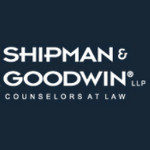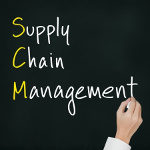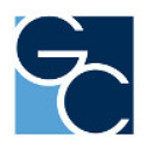 Shipman & Goodwin LLP, a full-service law firm with offices throughout Connecticut and in Washington, DC, recently made its website content accessible for clients and other visitors who have sight or hearing limitations. This move puts the firm among a small percentage of law firms nationally to have a website in compliance with the Americans with Disabilities Act (ADA). The firm ranks among the nation’s largest law firms on both the National Law Journal’s annual NLJ 350 survey and the Law360 400.
Shipman & Goodwin LLP, a full-service law firm with offices throughout Connecticut and in Washington, DC, recently made its website content accessible for clients and other visitors who have sight or hearing limitations. This move puts the firm among a small percentage of law firms nationally to have a website in compliance with the Americans with Disabilities Act (ADA). The firm ranks among the nation’s largest law firms on both the National Law Journal’s annual NLJ 350 survey and the Law360 400.
Firm leadership identified website accessibility as a priority in response to increased efforts by the U.S. Department of Justice (DOJ) to ensure that certain business and organization websites comply with the ADA, which requires that communication from public accommodations and commercial facilities must be accessible and usable to individuals with disabilities. While the broad definition of public accommodations does not include some types of private-sector businesses, recent actions brought by the DOJ signal that it might be prudent for companies such as law firms to make preparations for compliance.
For Shipman & Goodwin, “it wasn’t a question of whether or not the firm was required to make the website ADA compliant,” said Scott Murphy, the firm’s Managing Partner. “It was a natural step to take. Many of our clients either have sight and hearing limitations, or are in the business of helping those who do,” he said. All content on Shipman & Goodwin’s website is now readable by ADA screen readers that are able to re-represent content to either text to speech, sound icons, or braille output devices. And although the firm recognizes that many clients and visitors will not be impacted by the change, it was important to provide access to those who do require special assistance.
“As we approach the 25th anniversary of the Americans with Disabilities Act it is great to see a business so thoroughly embrace the principles of accessibility, effective communication and equality in the provision of its services,” said Michelle Duprey, Director, Department of Services for Persons with Disabilities, City of New Haven in Connecticut.
Client of the firm Jeff Bravin, Executive Director of the American School for the Deaf (ASD), agrees, and wishes more people would take the initiative to make their websites ADA compliant. “For nearly 200 years, ASD has strived to provide accessibility to information for our students and clients. We need more people to help level the playing field for people of all abilities,” he said.
“Every little step makes our community a better place,” added Ms. Duprey.
Shipman & Goodwin LLP is a full-service law firm with more than 160 attorneys and offices in Hartford, Stamford, Greenwich and Lakeville, Conn. and in Washington, DC. Founded in 1919, the firm serves the needs of local, regional, national and international clients, which include public and private companies, institutions, government entities and non-profit organizations. The firm also actively supports pro bono service and community involvement on both a firm-wide basis and among attorneys at all levels. For more information, visit www.shipmangoodwin.com.
 The president of the American Bar Association is set to urge chief executives at all of America’s Fortune 500 companies to commit to ending human-rights abuses in their supply chains. The ABA president will send executives the message in a letter by the end of this year, reports the Minneapolis Star Tribune.
The president of the American Bar Association is set to urge chief executives at all of America’s Fortune 500 companies to commit to ending human-rights abuses in their supply chains. The ABA president will send executives the message in a letter by the end of this year, reports the Minneapolis Star Tribune. The Network for Public Health Law presents a free on-demand webinar providing an update on Affordable Care Act implementation, including states’ decisions regarding Medicaid expansion and health insurance exchanges, as well as a number of provisions regarding public health.
The Network for Public Health Law presents a free on-demand webinar providing an update on Affordable Care Act implementation, including states’ decisions regarding Medicaid expansion and health insurance exchanges, as well as a number of provisions regarding public health. Practical Law presents an on-demand discussion with Fried, Frank, Harris, Shriver & Jacobson LLP about IP and information technology considerations in the context of negotiating and drafting complex corporate transactions for in-house lawyers and their counsel.
Practical Law presents an on-demand discussion with Fried, Frank, Harris, Shriver & Jacobson LLP about IP and information technology considerations in the context of negotiating and drafting complex corporate transactions for in-house lawyers and their counsel. Norton Rose Fulbright presents a complimentary on-demand webinar on the key issues facing energy companies worldwide as they pursue new opportunities in the unconventional hydrocarbon sector.
Norton Rose Fulbright presents a complimentary on-demand webinar on the key issues facing energy companies worldwide as they pursue new opportunities in the unconventional hydrocarbon sector. Stefan Thomas and Evan Schwartz have posted a complimentary white paper detailing smart oracles, which can provide a simple, flexible way to implement “smart contracts.”
Stefan Thomas and Evan Schwartz have posted a complimentary white paper detailing smart oracles, which can provide a simple, flexible way to implement “smart contracts.” The U.S. Department of Energy’s Office of Electricity Delivery and Energy Reliability in coordination with the Federal Smart Grid Task Force will conduct a webinar to conclude the development phase of a Voluntary Code of Conduct (VCC) related to privacy of customer energy usage data for utilities and third parties.
The U.S. Department of Energy’s Office of Electricity Delivery and Energy Reliability in coordination with the Federal Smart Grid Task Force will conduct a webinar to conclude the development phase of a Voluntary Code of Conduct (VCC) related to privacy of customer energy usage data for utilities and third parties. Restaurant.com is arguing in federal court that it shouldn’t be forced to pay penalties for gift certificates it sold in the past, penalties that could go as high at $1 million.
Restaurant.com is arguing in federal court that it shouldn’t be forced to pay penalties for gift certificates it sold in the past, penalties that could go as high at $1 million. Russian sanctions are defeating efforts to automate compliance using screening software, reports The Wall Street Journal.
Russian sanctions are defeating efforts to automate compliance using screening software, reports The Wall Street Journal. American Apparel Inc. has named Chelsea A. Grayson its new executive vice president, general counsel and secretary of the company. The appointment will be effective Dec. 15, 2014.
American Apparel Inc. has named Chelsea A. Grayson its new executive vice president, general counsel and secretary of the company. The appointment will be effective Dec. 15, 2014.
 Could you confidently walk through a small to medium sized industrial facility and identify the various opportunities to reduce energy use and costs?
Could you confidently walk through a small to medium sized industrial facility and identify the various opportunities to reduce energy use and costs? LexisNexis Martindale-Hubbell offers a complimentary on-demand webinar exploring best practices for creating and sharing your own law firm video.
LexisNexis Martindale-Hubbell offers a complimentary on-demand webinar exploring best practices for creating and sharing your own law firm video.
 International law firm offers a free
International law firm offers a free 